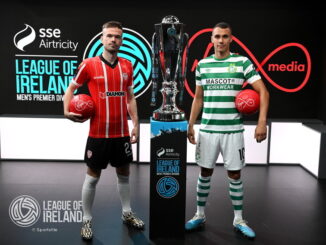
It was released as a surprise and in barely enough time to give it a full listen was being hailed as a classic; the immediate reaction to Kendrick Lamar’s To Pimp a Butterfly said more about the people reacting than it did about the album itself.
Music has always had a problem with elitism and hip-hop is no different; in fact it’s most likely the genre in the mainstream consciousness that is most plagued by theories of authenticity. The idea of “real hip-hop” harkens back to hip-hop’s so-called golden age, when artists like A Tribe Called Quest and Public Enemy released critically acclaimed, commercially successful hip-hop built from jazz and funk samples.
People who ignore the fact that this era also birthed Vanilla Ice and MC Hammer rushed to the internet to proclaim a new classic when To Pimp a Butterfly was released a week early, just like they did in 2012 when Kendrick’s good kid, m.A.A.d city was released.
Anyone who listens to To Pimp a Butterfly should be able to pick up on the fact that immediate praise for the album is almost impossible. For an album so dense and so left-field (he raps over free jazz on “For Free? (Interlude)” for God sake!) to be immediately acclaimed seems almost factitious.
To Pimp a Butterfly might well become a classic, but the amount of listens this body of work commands means that immediate acclaim seemed to be serving ulterior motives; namely, positioning Kendrick Lamar as the undisputable king of hip-hop (whatever that means) and the championing of a certain style of hip-hop over others.
Upon survey, the current field of mainstream hip-hop throws up three major heavyweights: Kendrick Lamar, Drake and Kanye West. The three contrast greatly; Lamar is the traditionalist, the most technically gifted rapper. Drake is the one who made emotional frailty and ambient beats cool in mainstream hip-hop. Kanye West is Kanye West.
Kanye, Drake and Kendrick are all needed as much as the other when it comes to hip-hop, and while critical reaction is generally positive for all three, it’s in the online threads that the real views of the hip-hop community are seen and they are almost unanimous; we don’t like new Kanye, Drake sings too much and is too emotional, Kendrick is king.
The reception for lesser artists tells a similar story, J. Cole being the prominent example. Cole’s music can be described as pleasant at best, but because of his adherence to the “real hip-hop” aesthetic, his painfully mediocre albums are often suggested in discussions about what albums from this generation will be considered classics in the future.
The truth is, Illmatics are not willed into being; they just happen, often as a result of eschewing standards, not sticking to them. To Pimp a Butterfly might become this generation’s Illmatic, or it could be Yeezus. Time is the way to know and to blow something up as a classic mere hours after its release isn’t fair to the public or to the artist.
Odrán de Bhaldraithe




Leave a Reply